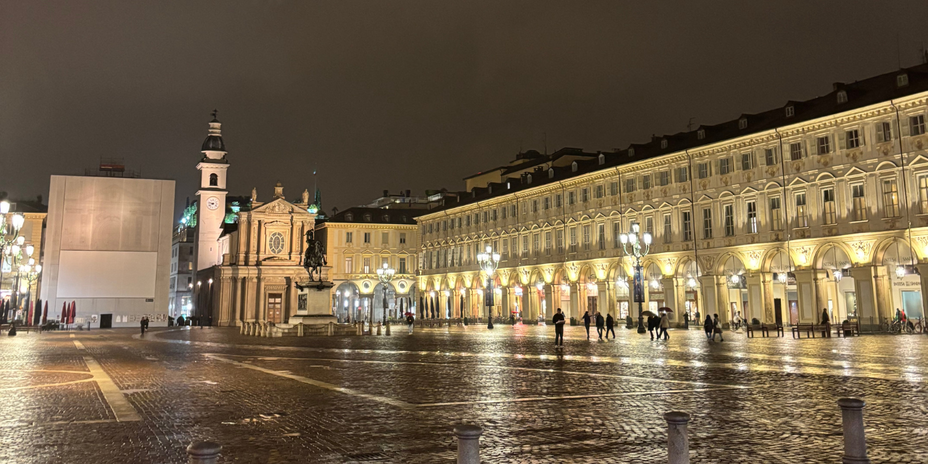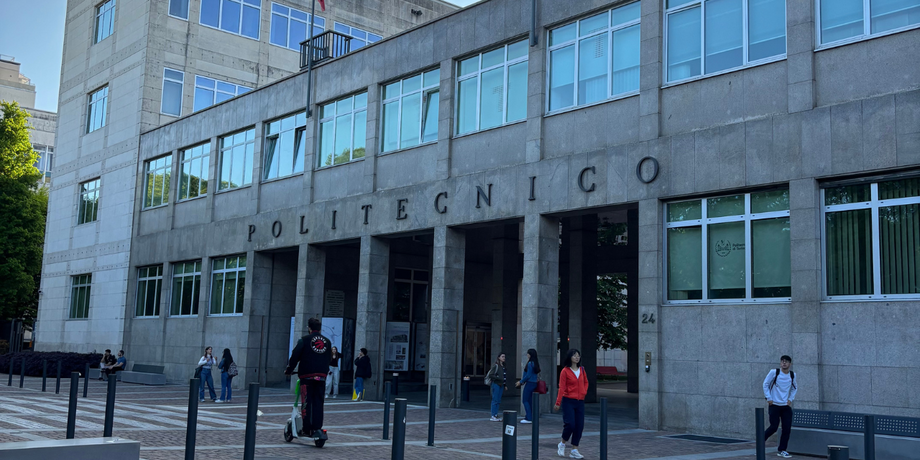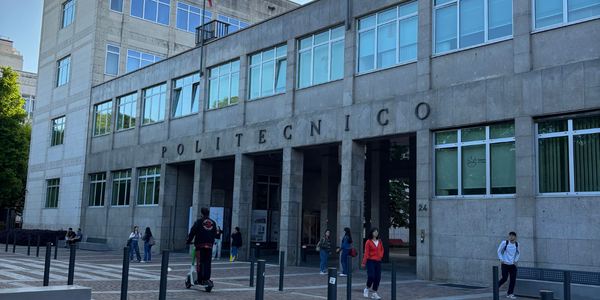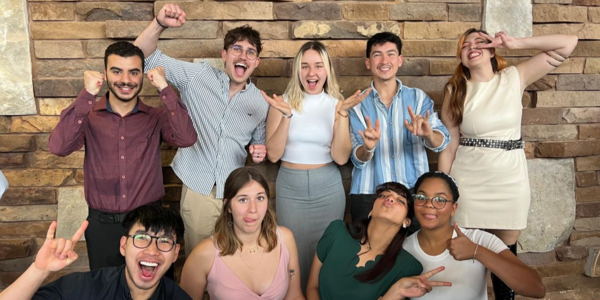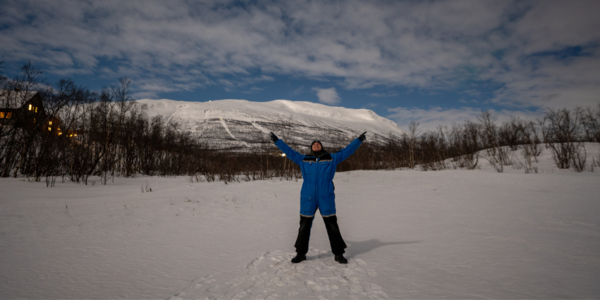Ciao, mi chiamo Marvin! I’m studying Mechanical Engineering and Business Economics at TU Graz and I’m basically the “Graz pioneer” for Erasmus at the Politecnico di Torino (PoliTo). That’s why I’m excited to share my experiences with future Erasmus students. In my first blog post, I’d like to focus mainly on my experiences so far and the positive aspects of my stay.
Why did I decide to do an Erasmus semester – and why in Turin, of all places?
Like many others, it was the desire to experience something new and to grow on a personal level. At twenty-five, I felt that this was exactly the right time – somewhere between the end of “youth” and the beginning of “real adult life.” I wanted to step away from my study routine, but also – since I’ve been working for more than three years – from my everyday work life. Instead of meetings and appointments: new impressions and enjoying life. I can say that I already feel I’ve grown personally – just like countless others after a stay abroad. That’s why I can only congratulate anyone who decides to do an Erasmus semester!
For me, one thing was clear from the start: If Erasmus, then Italy. I’m fulfilling a childhood dream – to be part of this amazing country and its fascinating culture, and at the same time to have the chance to learn this beautiful language. It was also an opportunity to find out whether Italy could be a long-term place to live for me. From the very beginning, I had a really good feeling about Turin, which made the decision easy – and I haven’t regretted it for a single second since.
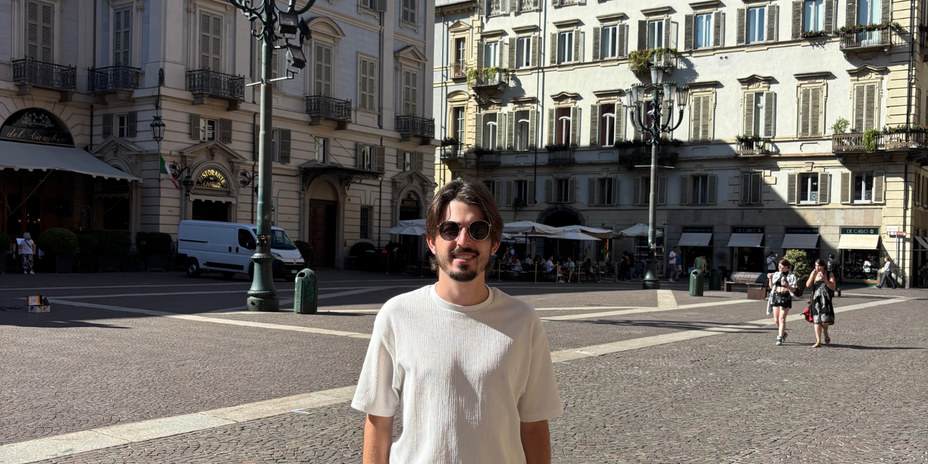
Turin, you’ve won my heart
Turin is located in the northwest of Italy, in the region of Piedmont, and with nine hundred thousand inhabitants, it is the fourth-largest city in the country. The city is crossed by the Po River and surrounded by the Alps. "Torino" was once the first capital of united taly, and this royal past is still reflected today in its magnificent palaces, such as the Palazzo Reale, Palazzo Madama, or the Reggia di Venaria Reale. Turin is especially known for the Mole Antonelliana and in addition, it is the home of several museums, such as the Museo Egizio, the second-largest Egyptian museum in the world, and it is closely connected to the automotive industry (FIAT).
Turin also plays an important role in sports: Juventus Turin – Italy’s biggest and one of Europe’s most successful clubs – is based here, as is the traditional club Torino FC. Turin was also the host city of the 2006 Winter Olympics. Its elegant architecture, historic arcades, spacious squares, and green parks make Turin a destination that absolutely deserves to be experienced.
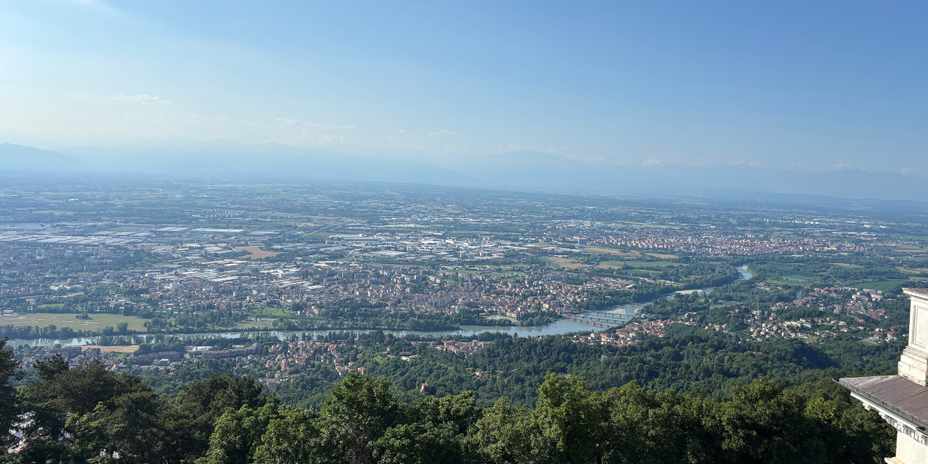
Studying at Politecnico di Torino
Studying at PoliTo has its own special charm. Lectures start no earlier than nine a.m., there’s a cafeteria in the heart of the university, and all the walkways across campus are accompanied by relaxing piano music. Student life here is a mix of typical Italian relax and occasional chaos. The classes themselves are well structured and taught in English. I enjoyed attending them, and the quality is on the level of TU Graz. One major difference compared to TU Graz is the ECTS structure: At PoliTo, the credit distribution makes much more sense – all courses are worth between six and ten ECTS. Also, the exam period is clearly separated from the rest of the semester and always takes place after the lectures. Midterm exams are uncommon here.
My personal favourite course is the free Italian language class, which also counts for six ECTS. With four and a half hours of lessons per week at A2 level, you notice progress quickly – and especially in everyday situations, you become more confident and courageous with the language week by week. I also had the chance to complete the free PLIDA certificate – the Italian equivalent of the Cambridge Certificate!
There are also some differences when it comes to university cafeterias. As an Erasmus student, you get a full lunch for two euro fifty and can choose between different Italian dishes. If you have the time, you should definitely try the cafeteria called “Dubai” on the edge of the city – they regularly serve seafood and sometimes even tiramisu for dessert.
Overall, I can only speak positively about everyday life at PoliTo. One thing I especially want to highlight is the International Office! Especially at the beginning of the semester, when many questions came up, the team was always there to help and support. The welcome event was also very informative and made the start much easier for me.
Did you know that Politecnico di Torino is just one of eight partner universities that, together with Graz University of Technology, form the Unite! university alliance? Find out what other opportunities Unite! has to offer next to spending an exchange semester or year at one of our partner universities in the blog post “5 exciting ways to enhance your university experience with Unite!”.
From Lectures to Aperitivo: My Life in Turin
I quickly made friends with people from many different countries – and of course also from Italy. The Erasmus Student Network (ESN) was especially helpful in this regard, offering a wide range of great events to help students connect. ESN organises fantastic activities such as wine tastings, gelato workshops, and trips throughout Italy, where you not only experience a lot, but also easily get in touch with other students.
When it comes to everyday life, everything in Turin feels a bit more relaxed – apart from the traffic. It seems like people here work to live rather than live to work. Even in stressful moments, there's always time for a quick caffè or a short chat. And yes, Italians love to talk – just like me! If you speak a little of the language, it's really easy to strike up conversations with all kinds of people, whether it’s the friendly elderly lady in the elevator or the athletic fitness coach at the gym.
Culinary-wise, Turin also has a lot to offer – and yes, the cliché is true: there’s no bad pizza in Italy. Besides all its many variations, pasta dishes and a traditional Italian snack are also absolutely worth trying. Aperitivo, in particular, is a big tradition here. For six to eight euros you get a drink (usually an Aperol) and a selection of snacks like pizza bread, ham, cheese, and baked goods.
My new personal Italian favourite dish? Gnocchi al pistacchio. I tried it for the first time in Padua and have been in love with it ever since. I’ve also discovered a passion for the many different types of focaccia.
If you enjoy going out, Turin offers a wide range of bars – from sports bars to historic cafés in the old town and even venues directly by the Po River. There are also some clear differences compared to Austria – like the late dinner time (usually around eight p.m.), the high coffee consumption, and the quite sweet breakfast.
Even in your free time, you’ll never get bored here. I had the chance to watch Juventus Turin several times and Torino FC once live in the stadium – a real highlight for me as a fan. There are also regular big events, like the “Torino is fantastic” and the Marco Mengoni concert, which were highlights for me. But smaller events, like parties in Parco del Valentino, are also part of everyday life here.
Thanks to its proximity to the Alps, Turin is also ideal for hiking – it feels just like home. Highly recommended: a trip to the Basilica di Superga, from which you get an incredible panoramic view over the entire city.
There’s also a solid network of gyms – for budget reasons, I recommend signing up while still in Austria.
The biggest highlight of my Erasmus semester, however, was all the traveling. These are experiences I’ll probably still tell my children and grandchildren about one day. Turin is the perfect starting point: the mountains and Switzerland, the northern Italian lakes (like Lake Como and Lake Garda), the sea near Genova, and cities like Milan and Florence are all within easy and quick reach. The Trenitalia app became absolutely essential for me during this time – but more about my travels in a later blog post!
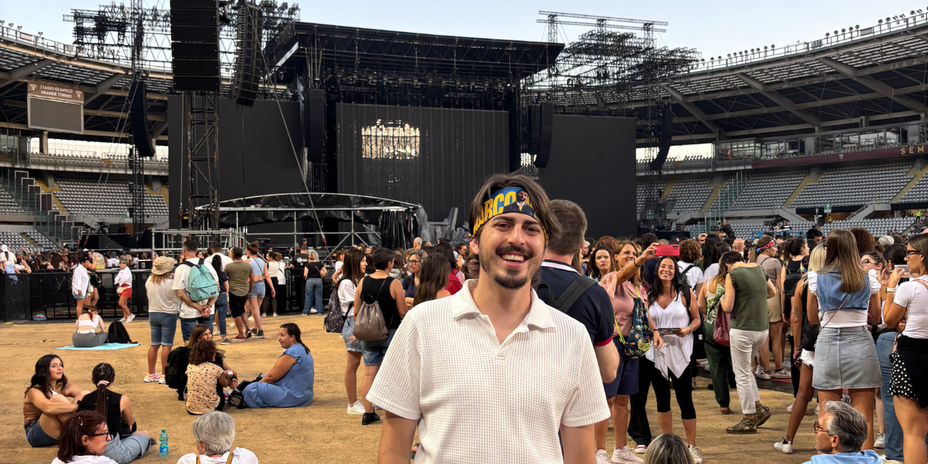
Safety in Italy
I want to consciously address this topic as well, since Italy doesn't always have the best reputation in this regard. Personally, I feel very safe in northern Italy – at the moment, even a bit safer than in Austria. Large events are subject to strict security checks, including full-body scanners, and the noticeably stronger presence of police and military at key locations such as universities and train stations stands out compared to Austria. Routine spot checks are part of everyday life here, and even supermarkets have their own security personnel.
Conclusion of my exchange in Turin
If you’re someone like me – open, emotional, in love with Italian culture, eager to experience the real Italy, and passionate about travel – then Turin is the perfect next step. Week by week, the city has grown closer to my heart – it’s a place I’ll always happily return to. I’ve also come to deeply appreciate the people and their mentality, and there’s a lot I’ll take home with me. At the same time, I’m genuinely happy for everyone who will get to have the same kind of experience. And who knows – maybe my future is in Italy!
Keen to spend a semester abroad in Turin? In the intranet TU4U, under “Erasmus+ Partner Universities,” you will find an overview of all Italian universities available for the Erasmus+ programme. In TU4U you can also find more information about Erasmus+ student mobilities for studies in Europe. Start planning your own semester abroad today!
